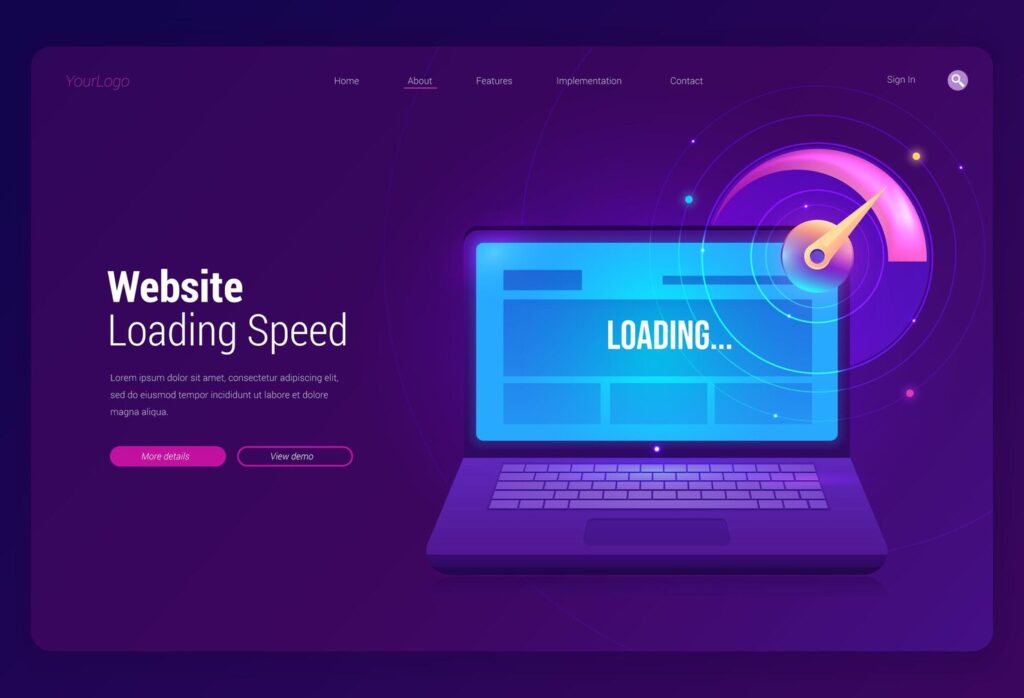5 Common WordPress Mistakes That Are Slowing Down Your Site (Fixes Inside) WordPress is a super-powerful platform, but the smallest mistake will slow it down to a crawl. If you work the right way, things on this platform are relatively less troublesome.
Just imagine having a lost visitor because of a site that is too slow to load. The growing studies show delaying just for a fraction like a mere one second can blow up the business deals and increase bounce rates. Of the mistakes that slow page load times, chances are that you are responsible for one or more.
Below are five common mistakes in WordPress that could slow down your website. Furthermore, we shall provide specific remedies that will help to optimize speed and accelerate performance. A quicker website implies more cheerful visitors, a better SEO ranking, and increased conversions. Therefore let us begin!
Choosing a Slow or Overloaded Hosting Provider

The speed of your website is greatly determined by your hosting provider. Simply ensure that your webpage gets snuffed, but do not fully extinguish it later on, nor permit seedlings to take root in the ashes. Shared hosting, on one server, with a glut of websites can make things even slower than they already are. If your website is slow, site visitors will leave before even getting to your content.
Choose the kind of hosting provider of some repute that offers quick servers, and good and optimized performance. Managed WordPress hosting or VPS or a dedicated server would bolt your site speedily and undisturbed by flat tires when guns are emphasized. Features such as SSD storage, a caching system, and CDN, which are important to achieve faster loading speed requirements, ought to be considered. Reliable web hosting companies can boost your website’s performance greatly. This in turn ensures your visitors’ positive experience is being maintained well.
Using Too Many or Heavy Plugins
5 Common WordPress Mistakes That Are Slowing Down Your Site (Fixes Inside) Plugins help to add functionality to your WordPress site, but too many of them will slow down your site. The problem is the high CPU load and disk loading time being put up by some plugins. Heavy plugs written poorly can also interfere with each other and introduce the possibility of unprotected sites. A slow site frustrates viewers and decreases SERP rankings.
To remedy this, conduct an audit of the plugins that are installed, and then discard those that are no longer required or that are outdated. Use lightweight alternatives and check performance impact using tools like Query Monitor. Opt for well-coded, regularly updated plugins from trusted developers. Keeping your plugins optimized ensures a faster, more efficient WordPress site.
Unoptimized Images and Media Files
High-quality images are a major source of data on a website-server. More sophisticated images result in longer load times, raising page load periods, and irritating people site that is slow means a bad user experience and may impede your SEO. The images that are not compressed consume more bandwidth and in turn, affect the performance.
To fix it, use an online image compression tool such as TinyPNG, ShortPixel, or Smush to compress all the images without losing their quality. Convert available images to modern formats like WebP for faster loading times. Enable lazy loading so images load only when needed. Properly optimized media files improve site speed and enhance user experience.
Not Using Caching and a CDN
Each time a visitor arrives, the website has to load all elements from scratch with no caching. Higher server load and latency are major drawbacks during intense traffic hours. The benefit of implementing cache is to offer a fast loading experience making it one of the crucial production server requirements. Users can abdicate if they have to wait for too long for the content to load.
Resolve the issue by enabling caching with WP Rocket or W3 Total Cache plug-ins and generating static pages. Consider implementing a Content Delivery Network (CDN) like Cloudflare or Bunny CDN that distributes content all around the world to mitigate server load. Caching along with CDN work together to speed up your site and to enhance its performance.
Poorly Optimized Theme and Code
An over-spreading or ill-structured theme can come across your way to undermine the speed with which your WordPress site runs. Some themes come with unnecessary features, too many scripts, and heavy design elements that increase the time needed for the site to load. Unminified CSS and javascript code are considered bad programming practices and make your page load inefficient in performance. Slow websites could directly affect users, and SEO rankings, fall downwards.
So in this case, go for a lightweight, WP-optimized speed theme, say, Astra or Generate Press. Remove unused script tags, and minify CSS and JavaScript using plugins like Autoptimize. Optimizing the theme is directly connected to better performance and user experience. Regularly maintain your site’s code and keep it clean for a faster, more efficient performance.
Other Speed-Boosting Tips
Apart from performance issues, even small optimizations to your site can enhance speed. To obtain superior speed from sites, one must constantly keep the themes, plugins, and WordPress software up-to-date scripts have their offerings, including fonts or advertisements, restrict the loads. A clean and well-cared site runs much faster and gives a better user experience.
Further, turn on Gzip compression to enable file shrinkage for faster loading. Refine the server databases whenever serialized WP data occupies unnecessary CPU space with sure-fire plugin mechanisms like WP-Optimize. Monitor site performance using additional tools like Google PageSpeed Insights. Taking these extra steps ensures that the WordPress site remains fast and efficient.
How Does Poor WordPress Hosting Impact Your Site?
Choosing a poorly rated hosting provider will disrupt the potential performance of your website, delaying its loading time and thereby upsetting visitors, ultimately increasing the bounce rate. Servers are overloaded, craving to service large volumes of traffic, something that results in system outages and very poor system performance. Low load times are SEO killers: the site is unable to fetch efficiently on search engines.
Frequency of downtime and security issues linked with the compromised server; this is like a toxic pandemic on e-server hosting. Having lots of sites on shared hosting can add even more load on your site as the resource requirements grow. Selecting a high-speed, top-quality hosting provider assures a faster speed, optimum uptime, and improved general performance.
Conclusion
A slow-loading WordPress site can hurt conversions, SEO rankings, and user experience. Slow performance is the result of certain kinds of errors such as inferior hosting. heavy plugins, or weak imagesSpeeding on your site will increase both its speed and engagement.
You can improve web performance through the right choice of hosting, image optimization, and caching. As is regular for maintenance, impromptu site advances and speed enhancers make it work faster. A fast website can equate to happier visitors as well as improved search engine ranking.

